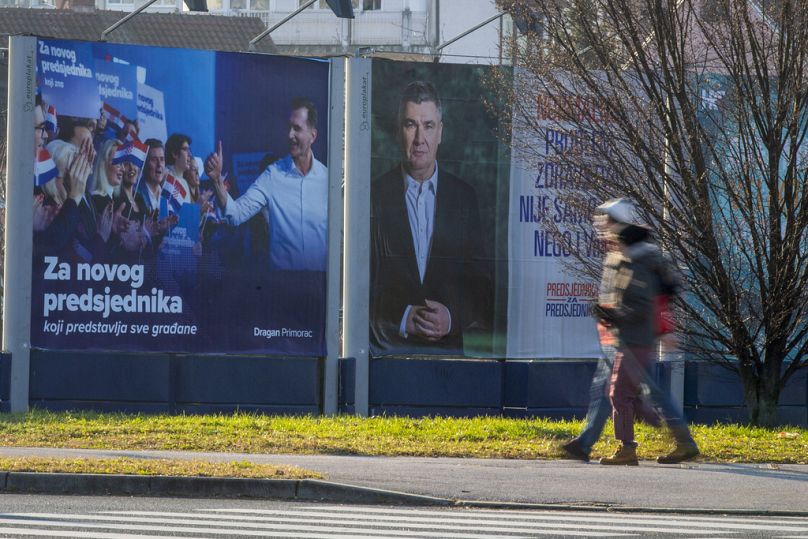The polls suggest Croatia’s left-leaning president Zoran Milanović, who is an outspoken critic of Western military support for Ukraine, will win.
On Sunday, Croatia's incumbent President Zoran Milanović is set to square off against Dragan Primorac, backed by the prime minister and his government.
 ADVERTISEMENT
ADVERTISEMENT
 ADVERTISEMENT
ADVERTISEMENT
In the first round, held on 29 December, Milanović won 49.7% of the vote against seven other candidates, just shy of half of the ballots needed to secure an outright victory.
A long-time leader of the Social Democratic Party (SDP) who spent the first part of his career in opposition, Milanović was the country's prime minister from 2011 to 2016.
Populist in style, he's been a fierce critic of current Prime Minister Andrej Plenković, who leads the Croatian Democratic Union (HDZ) party. Continuous clashes and bickering between the two have become a hallmark of Croatia's political scene.
After dethroning HDZ's President Kolinda Grabar-Kitarović five years ago, Milanović has steadily shifted to the right side of the political spectrum in recent years.
Nevertheless, he is widely seen as the only counterweight to HDZ and its rule.
In April this year, he tried to run in the parliamentary election as the prime minister candidate of the SDP, in an unprecedented move which saw a sitting head of state attempt to get elected to parliament.
Although he promised to vacate his presidential seat if successful, the Constitutional Court barred him from actively campaigning during the election.
The SDP then failed to form a majority in parliament, so Milanović remained head of state.
From paediatrics to politics
Milanović's opponent on Sunday Primorac was a paediatrician and a university professor before he entered politics.
Primorac has not been a presence in Croatia's political life since 2009 when, as the minister of science in a HDZ cabinet, he tried to mount an independent presidential campaign.
During this year's campaign, Primorac sought to portray himself as a non-conflict person and a unifier and also a pro-Western oriented figure, as opposed to Milanović.
Though the presidency is largely ceremonial in Croatia, an elected president holds political authority and acts as the supreme commander of the military. He also has some say in foreign policy.
Milanović has repeatedly said that Croatia should stay away from global disputes, even though it is a member of both NATO and the EU.
He has blocked Croatia's participation in a NATO-led training mission in Wiesbaden, and has spent several months trying to convince voters that he is preventing Croatian soldiers from being sent to the battlefield in Ukraine - even though this was never proposed.
Milanović had also tried to get opposition MPs to block Croatia's ratification of NATO enlargement, a formal requirement needed to admit Sweden and Finland into the alliance.
Milanović's main rival Primorac has repeatedly stated that Croatia's place is in the West, but his presidency bid has been marred by a high-level corruption case that landed Croatia’s Health Minister Vili Beroš — hailing from the same party as Primorac — in prison in November and which featured prominently in pre-election debates.
In the first round in December, Primorac won 19.6% of the vote — more than other candidates and enough to reach the run-off. However, his score was still regarded as a poor performance by a candidate backed by the ruling party, which also boasts the largest membership in the country.
Croatia has around 3.5 million eligible voters. The turnout in the first round was 46%, the lowest of any presidential election in 15 years.











